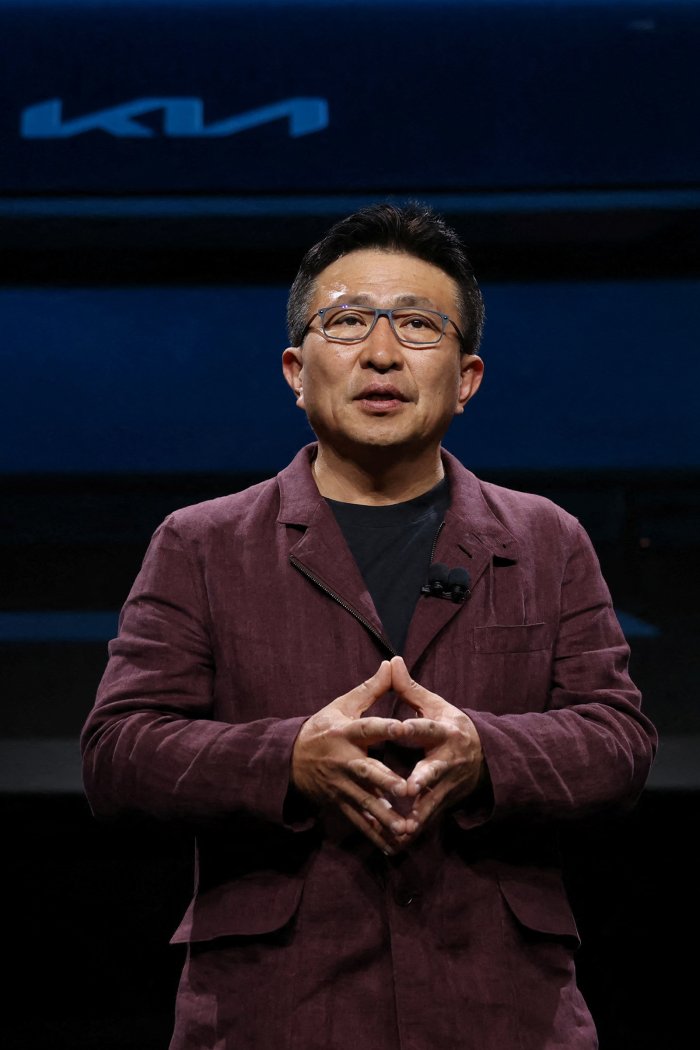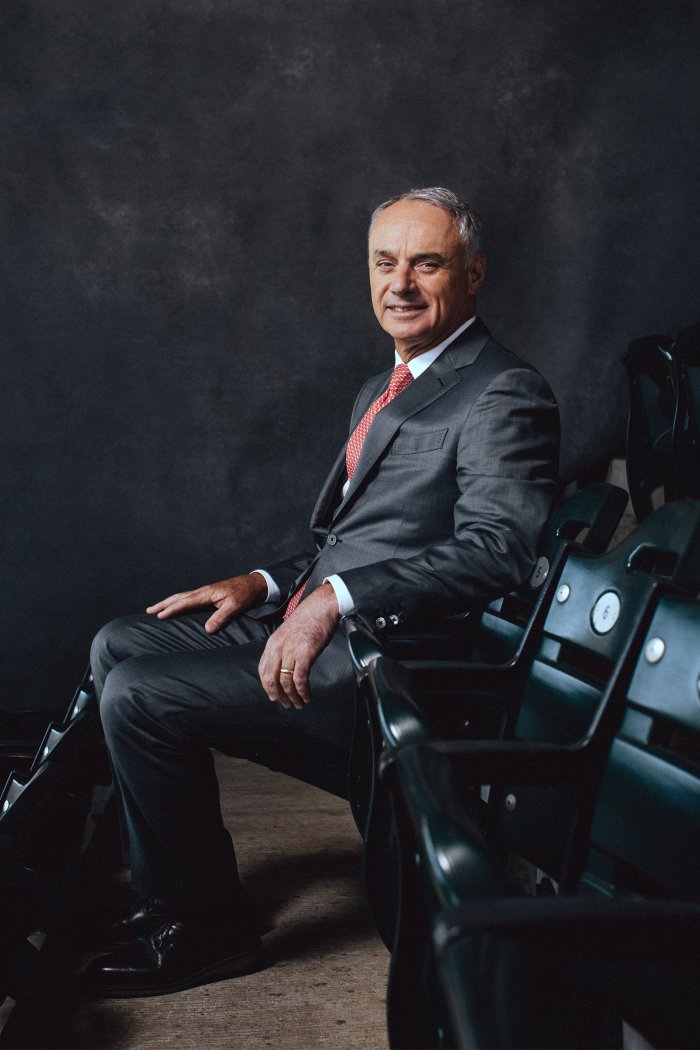This story appears on the cover of the TIME100 Most Influential Companies of 2023 issue.
At this juncture, most people have already made up their minds about Kim Kardashian. They’ve either decided she’s an early nepo baby with zero talent who has ridden her sex appeal and shamelessness to fame and fortune and can safely be ignored, or she’s a once-in-a-generation mix of beauty and determination who hustled her way up from being Paris Hilton’s assistant with her weapons-grade detector for cultural relevance, and can move any needle she pushes.
Until recently, the one person who didn’t seem to have quite made up her mind about Kim Kardashian was Kim Kardashian. Her uncertainty is reflected in the slew of businesses she started, including two beauty lines, a jewelry collection, multiple perfumes, Kimojis, and a mobile game, most of which were profitable, but never really stuck. “At the beginning, when I didn’t really understand where my career was going because I was just kind of winging it, I would do licensing deals with a lot of different companies that would contradict themselves, like a cupcake brand with a weight-loss pill at the same time,” she says. Skims, which first offered underwear and shapewear but expanded into loungewear, swimwear, tees, and dresses, has changed that—and the way the business world sees her. Talking about her most successful solo venture, Kardashian seems relieved. “I feel like, OK, I did it.”
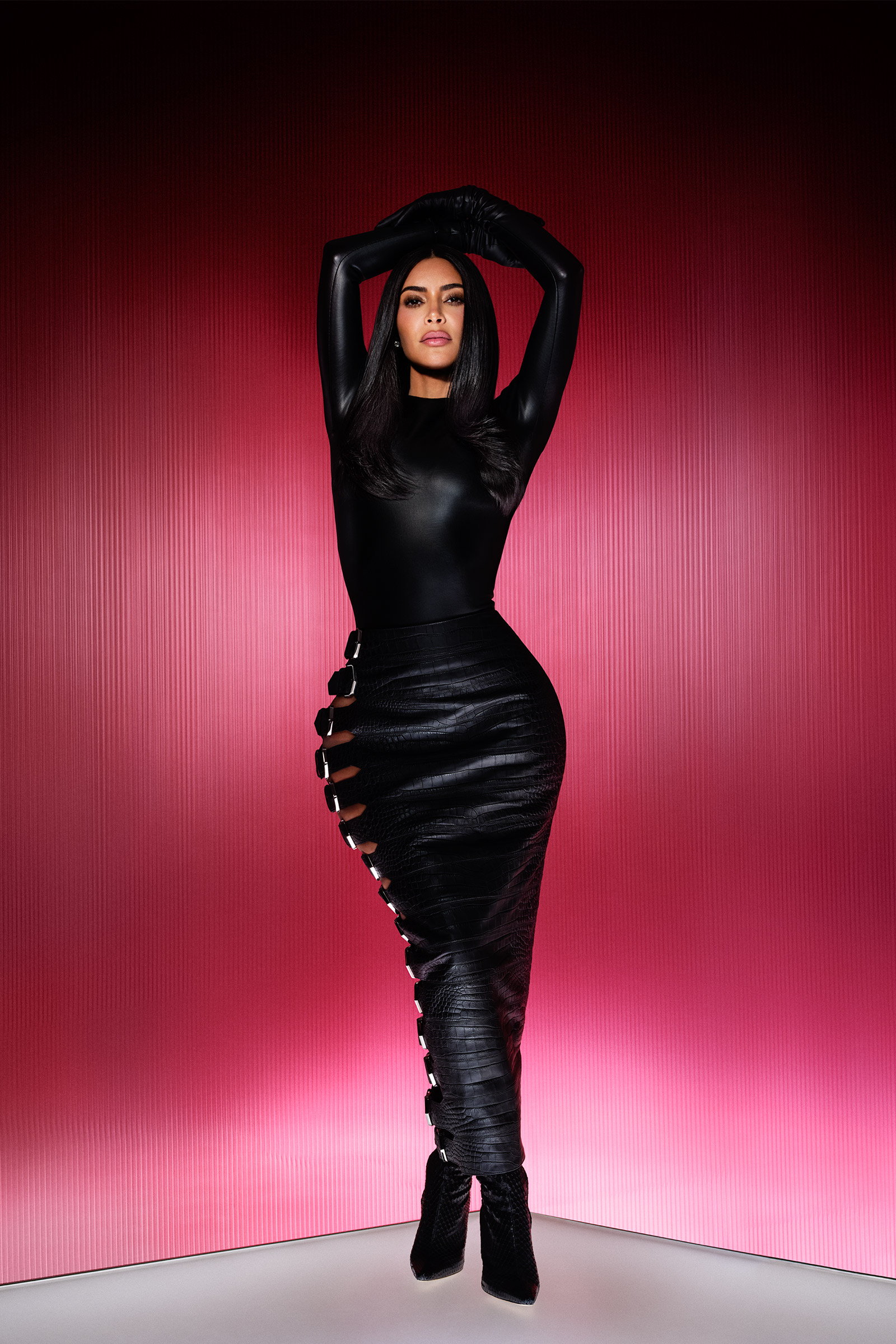
Founded in late 2019, Skims says it made $500 million last year, 25% more than projected and 80% more than it made in 2021, which was up 90% from the year before. So far, 2023 has been a down year for underwear sales, but buoyant for Skims; CEO Jens Grede, who co-founded the company with his wife Emma and Kardashian, says that sales of its intimates increased 86% year over year in April. Investors have noticed; in its latest round of funding in January 2022, the brand, which is privately held, was valued at $3.2 billion, double what it had been valued just nine months prior. (That’s $2 billion higher than either her sister’s Kylie Cosmetics or 2000s-era shapewear icon Spanx ever climbed.) Grede says he fields offers from outside investors weekly. Arguably, nothing any single Kardashian has done has been this astonishingly successful since their dad Robert took on the legal defense of O.J. Simpson.
There are subtle signs of the company’s impact, like a surge of copycats being dubbed as #Skimsdupes on social media feeds. There are less subtle signs too; the company is testing new brand extensions, such as a foray into bridal wear and, Kardashian exclusively tells TIME, a line of men’s loungewear and underwear launching this fall. (And yes, there will be men’s shapewear, she adds, but that will come later.)
“Obviously you have big hopes, but this definitely exceeded everything that I ever imagined,” says Kardashian, who began to sense the brand would be a hit when she walked into “some Hollywood party” and was greeted by a guest raising her top to flash her Skims. “I still have, like, impostor syndrome or whatever,” Kardashian says. “But I think that’s part of what keeps me going.”
Nobody is letting on whose idea Skims was, but Emma Grede started a denim brand with Khloe Kardashian, and at some point, Emma’s husband Jens Grede and Kim discovered they had overlapping interests: Kim wanted better shapewear, and Grede wanted better underpants.
“It started off with simply finding shapewear that was a skin tone that would match my color,” says Kardashian. “I used to take my shapewear and dye it with tea bags and coffee in the bathtub.” It was an imperfect method; she had to wear soaking-wet shapewear under her clothes at Cannes after one last-minute dye job. A fan of dramatic slits, she would cut one leg off her Spanx and then tape the cut edge to her thigh so it didn’t roll up. Skims isn’t the first to offer 10 skin tones (from “sand” to “onyx”), and sizes from XXS to 4X, but some of the unusual shapes, such as one-legged or the low-back version, were new even to fashion cognoscenti.
Skims launched at the dawn of the pandemic, when online retailing was hot. Brand awareness was a snap, since Kardashian has more than 350 million followers just on Instagram, and plenty of people are interested in ads of her in her scanties. Unlike some of Kardashian’s prior offerings, the products got good reviews. “They have a really great fabric,” says Tomima Edmark, the CEO of the online lingerie retailer Her Room. “It’s very soft, it stretches like crazy. That’s why it fits everybody. And the price point came in really well.” Bodysuits, for example, are less than $60.
Kardashian has put her own money into Skims and is the biggest shareholder. She’s also usually the fit model, which can mean hours of trying on tight underwear every week. She estimates she has tried on north of 7,000 items. “I always like to see it on myself,” she says. “I can absolutely tell when I miss a few drops.” On top of that, she’s Skims’ creative director, choosing the fabrics, the cuts, and the campaign concepts, photographers, and models, when they’re not her.
Grede says Kardashian is one of the best creatives he’s worked with. “To be a successful creative director today, you’ve got to have a point of view of the world,” he says. “You’ve got to have a very clear aesthetic that is identifiable to you, and you’ve got to be able to intimately understand popular culture.”
When he first showed Kardashian the packaging for Skims, she replied that it didn’t look like something you’d find in her home. It went back to the drawing board. It was Kardashian’s idea to get Snoop Dogg and his grandkids to do the Christmas campaign and to use the two actresses who played grifters in White Lotus for another. “She knows how to orchestrate popular culture,” says Grede.
Kardashian did more, however, than find a way to bring these styles to market. She also helped create the appetite for them.
It’s difficult to talk about Kardashian’s contribution without engaging in the impolite business of discussing her figure, but it seems equally wrong to ignore it, since she’s put such a lot of her time and money into it and it’s the shape that launched a thousand shipments.
The reality star has been both valorized and criticized for the way she has used her curves to build her brand. There are those who feel her popularization of the pear shape has been a liberation, and others who believe she owes more to Black and Latina women than she has ever acknowledged. But most people agree that she has not let her assets go to waste.
“A big driver of fashion change is how we want our bodies to look and what kind of silhouette and body shape we think is beautiful at this time,” says Larissa King, a lingerie designer and assistant professor at New York City’s Fashion Institute of Technology. “As Kim Kardashian became more widely admired, people wanted really curvy behinds. So our pants got higher, so they did not interrupt that curve on the back, and the focus was on the waist and the curves and hips and rear end.” Once pants get higher, underwear changes to accommodate.
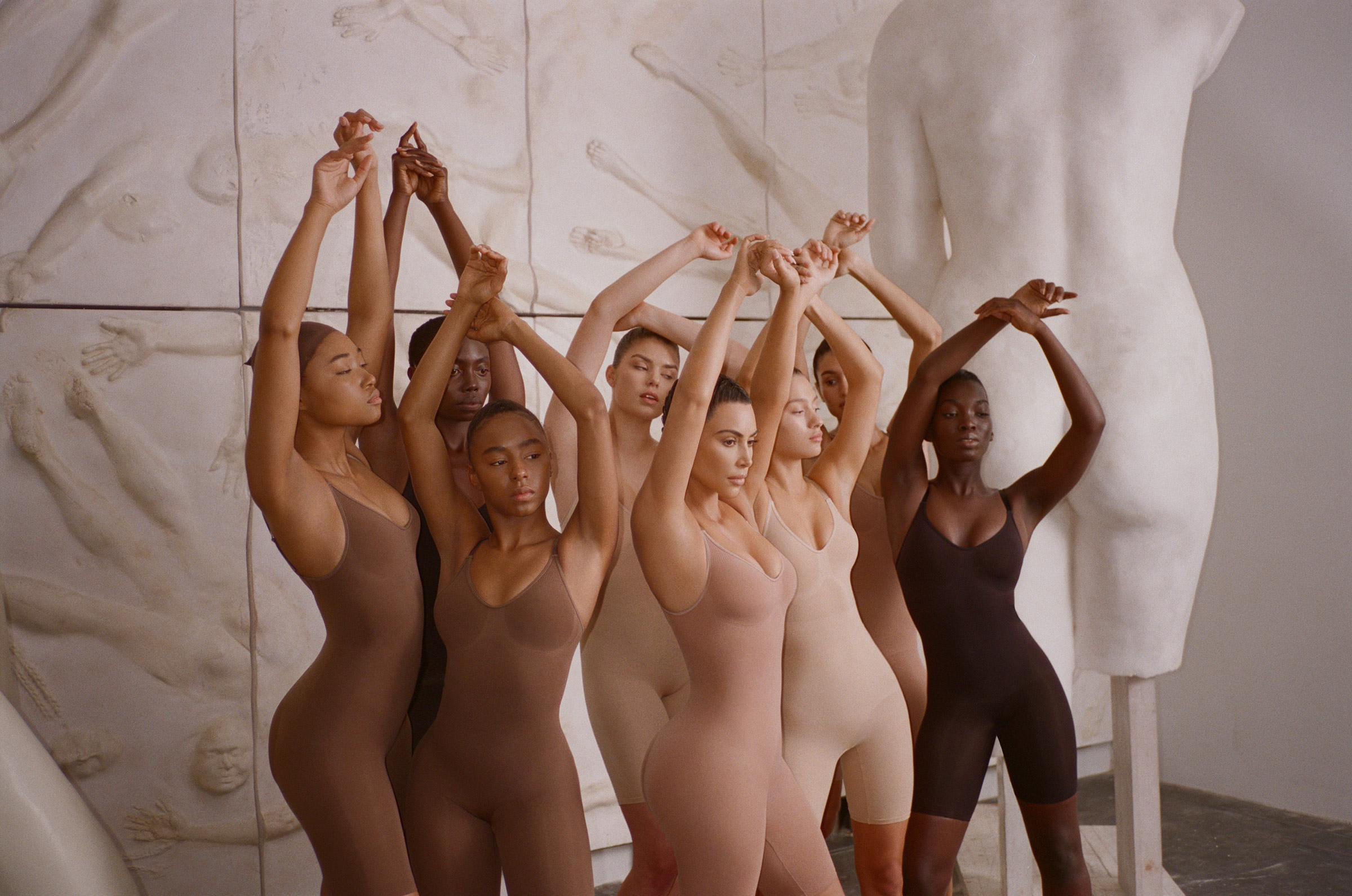
It’s not just beauty standards; commerce shifted in the star’s favor as well. The Kardashians are a direct-to-consumer family. And they work hard at it. Being a reality star is the direct-to-consumer version of fame. Dominating social media is the direct-to-consumer version of PR. While Skims is available in some stores and online retailers, most sales are directly through Skims.com. About a fifth of its customers are international, even though shipping is clunky. Since the Kardashians have colonized the international attention ecosystem, Skims’ reach stretches around the globe.
Even with initial success, celebrity brands are a high-risk proposition. Fame can fizzle, or a star can trip up, and the alchemy has to be just right. Grede shrugs off the twin hazards of saturation and scandal. “I cannot lose sleep over something I can’t control,” he says. Besides, he figures it will take an extraordinary event to take his co-owner down. “Kim is an incredibly sophisticated person,” he says. “I don’t know which crisis she hasn’t been able to emerge from.”
It’s true that the Kardashians have leaned into their more dysfunctional moments; Kim once told her sister Kourtney, during a scheduling conflict, that she was “the least exciting to look at,” and the comment made it to air. They operate under the credo that crisis is good for business and therefore good for the family, so the border between their private and public lives has always been permeable. But many of the Kardashian women are mothers now, and mothers get judged according to a different standard. As the Kardashian West children get older, their involvement in the family’s influence empire becomes fodder for criticism.
Kardashian admits that she hasn’t quite figured out exactly how to merge her children into the business. “Sometimes it’s trial and error,” she says. A recent get-together between the female rap star Ice Spice and Kim’s 9-year-old daughter North led to an Ice Spice appearance in a Skims campaign. But it also led to a public complaint from North’s father Kanye West, when a video of North rapping along with some of Ice Spice’s more salacious lyrics was uploaded to North and Kim’s shared TikTok account.
“As soon as I saw the words, I was like, ‘Oh no, we’re taking this down,’” says Kardashian, who sees TikTok as an important outlet for the oldest of her four children. “I saw on the internet, [people saying] ‘Kanye was right,’ and maybe he was in that instance,” she says. “But she loves making slime videos and doing her little hair tutorials, and I will fight for her to be creative.”
Kardashian is refreshingly game about discussing her errors of judgment. And she has learned how to handle them: own up, right the wrong, move on. Skims was initially called Kimono, but after outrage in Japan, she swiftly found and announced another name with “Kim” in it. Last year, she reached a $1.26 million settlement with the SEC for not disclosing she was paid to promote a crypto product. “What I learned was to not really trust everyone in spaces that you don’t really know about,” she says. “I try to not make the same mistakes twice.”
Fundamentally, she believes the appeal of her business lies in her authenticity: that she admits to not being able to achieve her world-famous shape without the help of stretchy pants. Perhaps she learned from her younger sister—Kylie Jenner was famously mocked for her lip filler before launching her billion-dollar lip kits—that Achilles’ heels, or in Kardashian’s case, Achilles’ heinies, are sometimes strengths. Of all the enterprises she has tried, she says, this one is the most her. “It’s just a part of me,” she says. “I take it really personally. It started off of my body and my shapes, and it’s very vulnerable.”
It’s an open question whether Kardashian, whose brand is aggressively feminine, can successfully launch men’s underpants. Grede, who describes the goal as underwear that still looks good at the end of the day, points to Lululemon as a brand that crossed the gender divide. Skims says the men’s collection will be marketed around athletes and musicians, an overlapping social circle that the Kardashian-Jenner sisters have been known to run in.
Kardashian has certainly surprised her doubters before. She’s studying law and has passed California’s baby bar exam, which has a notoriously low pass rate. In 2018, she helped persuade President Donald Trump to commute the life sentence of Alice Johnson, who had served 20 years for a nonviolent drug offense, and to pass long-overdue criminal-reform legislation. In a sign of how much more seriously she’s been taken since founding Skims, in September she founded an investment fund, SKKY, which is currently seeking capital to invest in clothing and food and beverage companies.
But, at 42 years old, Kardashian is cognizant that she may have a “time stamp,” as she puts it. “I understand that maybe in my 50s, I’m not going to be wanting to pose in my underwear,” she says. She hopes to cut back her appearances and pose in slightly fewer campaigns each year. But she’s also not giving up on what made her famous without a fight. “We’ll do anything we can to look as young as we can,” she says, switching to the royal we, as she should. “We’re not going to go out not trying.”
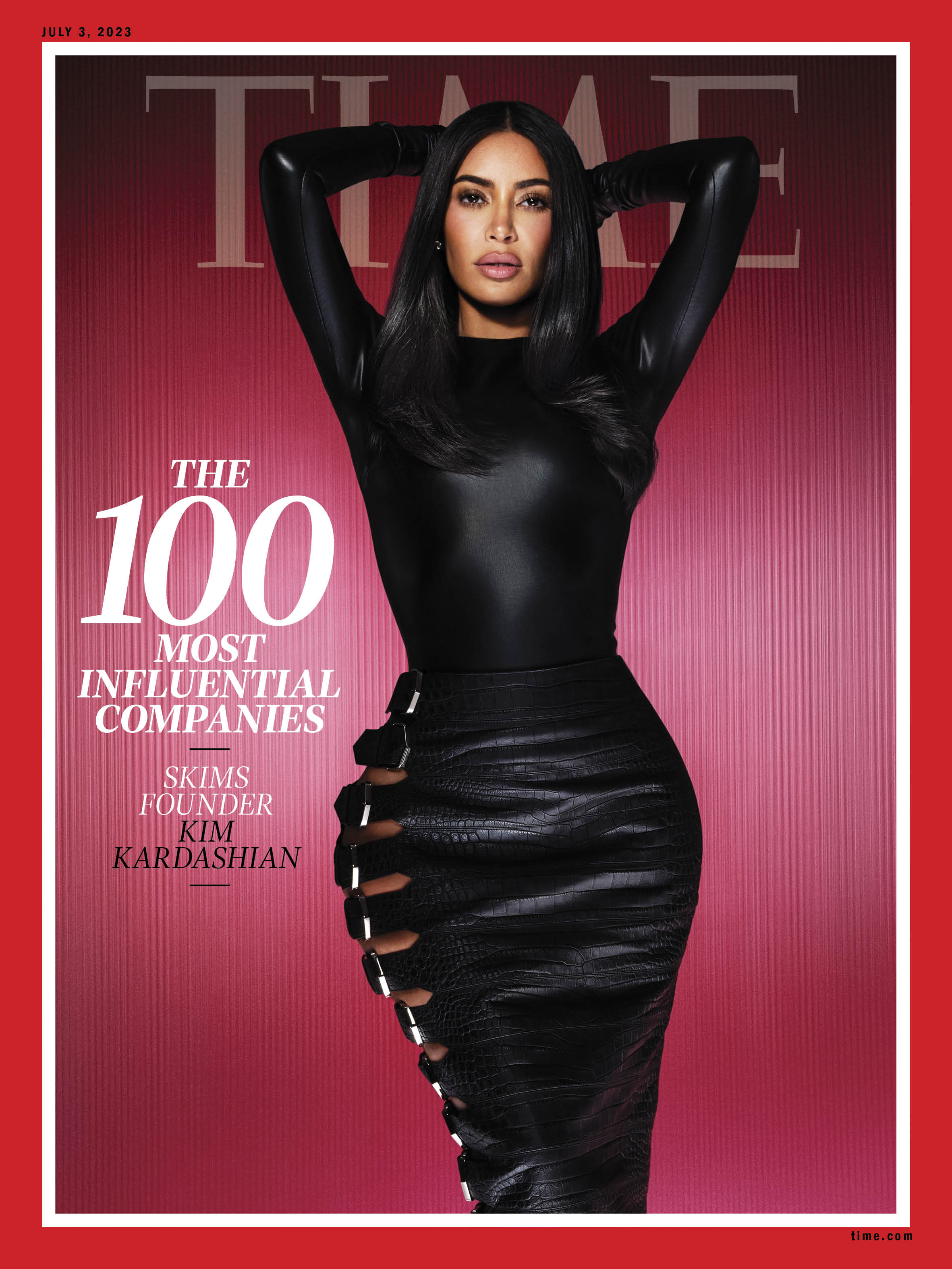
Buy a print of the TIME100 Companies cover featuring Kim Kardashian here
Production by Aries Rising Projects
A weekly newsletter featuring conversations with the world’s top CEOs, managers, and founders. Join the Leadership Brief.
- Cybersecurity Experts Are Sounding the Alarm on DOGE
- Meet the 2025 Women of the Year
- The Harsh Truth About Disability Inclusion
- Why Do More Young Adults Have Cancer?
- Colman Domingo Leads With Radical Love
- How to Get Better at Doing Things Alone
- Michelle Zauner Stares Down the Darkness

